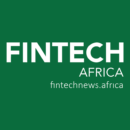In 2021, the momentum in Nigeria’s fintech ecosystem continued, driven by a blooming local startup scene, significant growth amongst large, established players, and a dynamic funding landscape.
Fintech was investors’ favored tech sector last year. They injected a whopping US$800 million in startups in the sector, making fintech the largest subset in tech by funding raised in 2021 (76.2% of the 2021 total), an analysis by Techpoint, a digital media company, shows.

2021 funding activity in Nigeria per category, Source: Techpoint, Dec 2021
Looking at fintech funding activity throughout the years, investors’ appetite in the local fintech sector was clearly visible in 2021: the US$800 million raised in 2021 was 120% higher than what Nigerian fintech companies had raised in the prior three years combined (US$360.7 million), signaling rising excitement and bullishness in the prospect of fintech in the country.

Fintech funding in Nigeria, Source: Techpoint, Dec 2021
The dynamic funding landscape pushed valuations, and helped turn fast-growing startups into unicorns. In 2021, two Nigerian fintech companies hit the one billion dollar valuation mark after recording strong growth: Flutterwave, a Nigerian and US-based payment company, closed a US$170 million Series C funding round in March, valuing the company at over US$1 billion; and OPay, a mobile money provider, reached a US$2 billion valuation after raising US$400 million in August.
Flutterwave is a paytech startup that helps businesses expand their operations in Africa and other emerging markets, providing a platform that enables cross-border transactions via one API. The company also helps businesses to create virtual Mastercard and Visa cards, among other payment services.
As of March 2021, Flutterwave said it had processed more than 140 million transaction worth over US$9 billion in aggregate, and that its revenue had risen at a compound annual growth rate of 226% between 2018 and 2020. The company is reportedly in talks to raise fresh funding at a US$3 billion valuation, insiders told Bloomberg in October 2021.
OPay offers a mobile-based platform for payments and banking. The startup allows individuals to act as banks and ATMs by equipping them point-of-sale (PoS) machines and underlying software.
OPay claims that in 2020, the company grew its total gross transaction value 4.5 times to over US$2 billion in December. Its mobile wallet product recorded more than 2 million accounts with balances totaling over US$17 million, and its agent network grew to 300,000 agents.
Flutterwave and OPay joined Interswitch, a digital payment company and Nigeria’s third fintech unicorn.
Open banking picks up steam
Open banking was a trend that particularly stood out in 2021. In February, Nigeria saw the launch of the Regulatory Framework for Open Banking, a new regulatory framework that sets out guidelines for data sharing across the banking and payment ecosystem.
The framework is set to pave the way for greater innovation and partnership within the financial industry, and is expected to accelerate adoption of digital financial services in the country.
Nigerian open banking pioneers, including OnePipe, Okra and Mono, are reaping the fruits of their early involvement in the space. These players have all closed rounds of funding over the past couple of months after recording strong growth and embarking on regional expansion plans.
Mono, an open banking platform, closed a US$15 million Series A funding round in October. The round brought the startup’s total funding to US$17.65 million.
Mono helps connect consumers’ bank accounts to financial applications. The startup currently provides two main products: DirectPay, which helps Nigerian businesses collect bank transfer payments from customers within their web or mobile app; and Statement Pages, which allows businesses to access customers’ financial accounts without needing a developer.
Since launching in Lagos in 2020, Mono has expanded to two other markets, processed and delivered over 200 million transaction data, and served a total of 1,200 developers and businesses.
Okra, an open finance infrastructure, raised US$3.5 million in a seed round in April to expand its data infrastructure across Nigeria.
Okra enables developers and businesses to build personalized digital products/services for consumers in Africa. It provides integrations including accounts authorization, balance, identity, income, payments and transactions.
Founded in 2020, Okra said in April that it had recorded an average month-on-month API call growth of 281%, and had analyzed more than 20 million transactions. It’s connected to every bank in Nigeria, and is currently in beta in Kenya and South Africa.
OnePipe, a fintech API startup, raised US$3.5 million in November to accelerate the development of its embedded finance offering. The startup helps organizations embed financial services such as accounts, payments and credit within their products, providing them with a single gateway.
The company claims it has processed more than 6.3 million transactions worth over US$46.3 million.
2021 Nigeria Fintech Map
In 2021, Nigeria added 15 companies in its fintech sector, bringing the total to 170 companies, an analysis by Segun Adeyemi, a fintech professional and entrepreneur based in London, shows.
An updated version of his Nigeria Fintech Map shows a wide and diverse fintech ecosystem comprising companies in 13 different segments that include payments, insurtech, savings, wealthtech, cryptocurrency, infrastructure, online lending, and business solutions.








1 Comment so far
Jump into a conversation